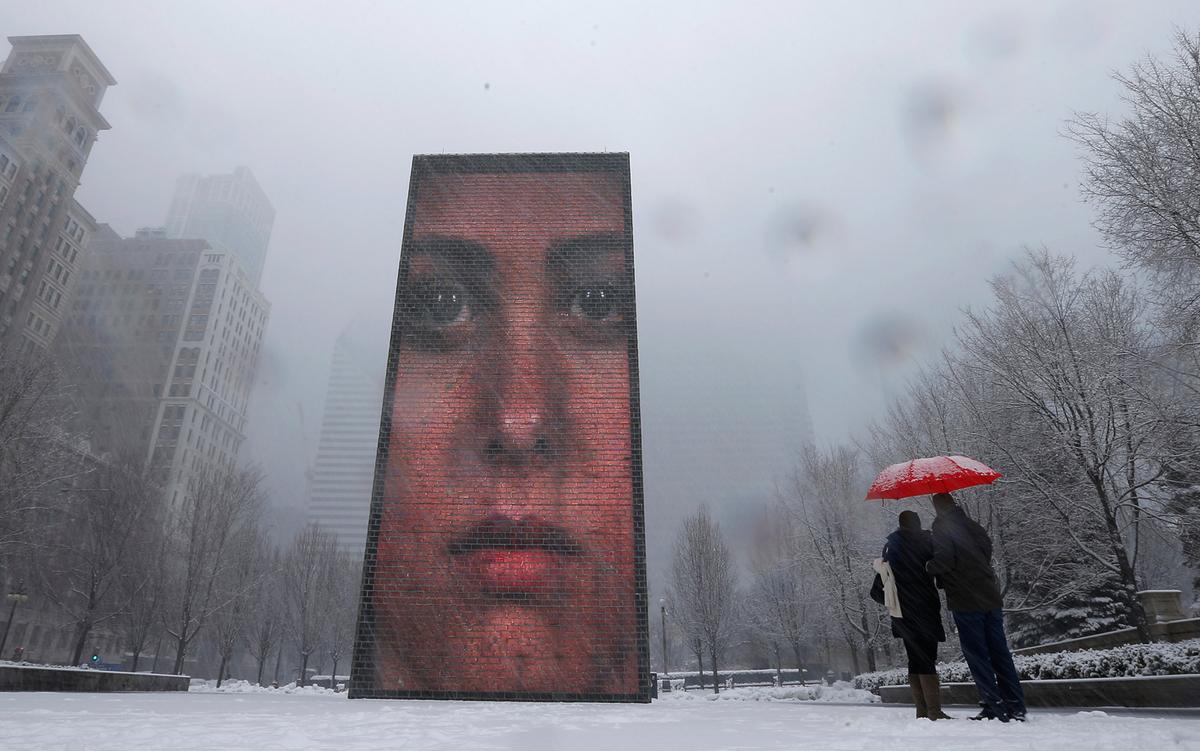Relational Knowing to Pierce Echo Chambers
Echo chambers are worse than epistemic bubbles. The difference is key to understanding today's politics.

With the impending shutdown of the Pocket article-saving app, I was prompted to revisit a few favorited classics. At the top of the list is an excellent 2018 Aeon article by philosopher C. Thi Nguyen. It's really a key to understanding modern politics, including how we got the abhorrent and thoroughly anti-reality budget reconciliation bill that Trump signed into law on America's July 4th holiday.

At the core of Nguyen's analysis is a careful distinction between echo chambers and epistemic bubbles. Both are social structures that systematically exclude sources of information and exaggerate their members’ confidence in their beliefs. However, Nguyen writes, they work in different ways and require different interventions. An epistemic or filter bubble is when you don’t hear people from the other side; relevant sources have been excluded by omission, whether purposeful, inadvertent, or an algorithmic mix. An echo chamber is when you don’t trust people from the other side, because social structures have actively discredited relevant external sources as malevolent and inherently untrustworthy. Echo chambers are cult-like and altogether more dangerous.
The way to break an echo chamber is not to wave “the facts” in the faces of its members. It is to attack the echo chamber at its root and repair that broken trust.
It's worth beginning with epistemic bubbles and their solution, which I described in my handy-dandy two-post series on the practical mechanics of getting things less wrong in our tricky and polluted information environment. That solution is, in short, process-relational: actively seeking a decent breadth, diversity, and quality (green flags) in our networks of information sources. "We can pop an epistemic bubble simply by exposing its members to the information and arguments that they've missed," notes Nguyen. Naturally, that applies to ourselves, too.
"But echo chambers are a far more pernicious and robust phenomenon," and they are pervasive in—though not exclusive to!—the conservative side of the political spectrum. Because the Aeon article is from 2018, a focus of its analysis is right-wing gasbag Rush Limbaugh, who unfortunately didn't die until 2021, karmically but not nearly painfully enough from lung cancer (may he rest in piss). Alas, Limbaugh's methods have metastasized throughout conservative media, including Fox News, social media, and Trump Administration press offices.
Purveyors of echo chambers actively transfigure whom their viewers, listeners, and readers trust. They attack and discredit "mainstream media," peer-reviewed science, and all other outside sources of knowledge and understanding. Anyone who expresses any contrary view is relentlessly framed as not just mistaken and unreliable, but manipulative and malicious specifically against those inside the echo chamber. These emotional isolation techniques parallel those of cult indoctrination. "The resulting worldview is one of deeply opposed force, an all-or-nothing war between good and evil," or in other words an extreme manifestation of the Euro-Western map-metaphysics that this blog exists to illuminate and fight. Crucially, people in echo chambers may have full access to outside sources; research showed that Limbaugh's followers regularly (hate-)read mainstream and liberal news sources, but did not accept them.
In fact, exposure to contrary views could actually reinforce their views. Limbaugh might offer his followers a conspiracy theory: anybody who criticises him is doing it at the behest of a secret cabal of evil elites, which has already seized control of the mainstream media. His followers are now protected against simple exposure to contrary evidence. In fact, the more they find that the mainstream media calls out Limbaugh for inaccuracy, the more Limbaugh’s predictions will be confirmed. Perversely, exposure to outsiders with contrary views can thus increase echo-chamber members’ confidence in their insider sources, and hence their attachment to their worldview.
Echo chambers' structural resistance to outside influence necessitates a very different solution than mere filter bubbles. What leading climate psychologist Dr. Renée Lertzman calls the "yell, tell, and sell" theory of change, a theory sadly still dominant in many science-oriented and progressive communications, not only doesn't work—it usually backfires. It assumes a deficit of information or reason that can be filled in. But members of echo chambers aren't necessarily uninformed or irrational. They haven't necessarily lost all interest in pursuing truth, evidence, reason, or decency. Rather, they've been misinformed by the self-reinforcing structural mechanisms of their echo chambers about where to place their trust.
Nor is falling into an echo chamber in the first place necessarily the result of intellectual or moral flaws. Nguyen gives the example of someone raised and educated entirely inside an echo chamber; a child has little choice but to trust and learn from those who raise her. When she later comes into contact with the larger world, she has all the reasons she needs to distrust all sources outside her echo chamber. She's had no variety of informational sources to show how everyone's fallible and put an upper limit on how much she's willing to trust any single source. She may be intellectually voracious and seek out information in good faith, but once she's trapped within the bounds of the echo chamber's distrust, she's likely to stay trapped.
For those who have not been raised within an echo chamber, perhaps it would take some significant intellectual vice to enter into one – perhaps intellectual laziness or a preference for security over truth. But even then, once the echo chamber’s belief system is in place, their future behaviour could be reasonable and they would still continue to be trapped. Echo chambers might function like addiction, under certain accounts. It might be irrational to become addicted, but all it takes is a momentary lapse – once you’re addicted, your internal landscape is sufficiently rearranged such that it’s rational to continue with your addiction. Similarly, all it takes to enter an echo chamber is a momentary lapse of intellectual vigilance. Once you’re in, the echo chamber’s belief systems function as a trap, making future acts of intellectual vigilance only reinforce the echo chamber’s worldview.
Nasty stuff, but essential to understanding how our politics has gotten where it is. Republicans have been taught by right-wing media to see anyone who critiques Republicans, whether on scientific, humanitarian, or other grounds, as untrustable enemies who must be defeated. Echo chamber dynamics also explain the failure of "deliverism," the idea that materially improving constituents' lives will make them more likely to vote for you. People's interpretations of their own material circumstances is largely a function of their information environments.
Nguyen offers one escape route: somewhat ironically, a modification of the all-doubting methods of map-metaphysician-extraordinaire Rene Descartes. Nguyen's social-epistemic reboot, however, trades Cartesian individualism and essentialist analytical absolutism for what turns out again to be a process-relational solution. (Hey-o!) A member of an echo chamber can escape and start getting things less wrong by suspending her beliefs in whom and what she trusts and "starting over," being at least provisionally open to trusting any outside sources rather than just who she happened to be raised by. This is rare; you may have already heard of Ngyuen's example, Derek Black, who was groomed from childhood to be a neo-Nazi leader but who famously left the movement by spending years building a new belief system based on intentional, open-minded immersion in broad, diverse, green-flag sources. Black's social-epistemic reboot was prompted by the kindness of a Jewish fellow undergraduate planting a seed of understanding how misleading the Nazi echo chamber had been. She's now Adrianne Black, a memoirist and anti-Nazi speaker.
This narrow escape route tends to revolve around personal connections that build holistic trust in an "outside" but adjacent person's overall character and good faith. Domain-specific reliability doesn't cut it. Nguyen's article ends on a somewhat bleak note, observing that the path is "a winding, narrow and fragile one. There is no guarantee that such trust can be established, and no clear path to its being established systematically. ... This path is not even one an echo-chamber member can trigger on her own; it is only a whisper-thin hope for rescue from the outside." Yet even though our political situation and the pervasiveness of echo chambers is worse now than it was in 2018, I think I can offer a slightly cheerier, albeit more demanding, conclusion.
For one thing, making the world better doesn't require saving that many folks from their echo chambers. It primarily requires outnumbering and out-organizing them. We already outnumber them, and tools are available to help us bridge across differences and act in alignment towards a future of regenerative and reality-based coexistence.
Of course, piercing echo chambers is still a worthy goal. Those of us not trapped in echo chambers (demonstrable by the decent breadth, diversity, and quality of our networks of information sources) can approach trust-(re)building from a variety of angles. Some of the work will involve processes of acquiring and using multi-level political power to, for example, systemically reform media and information environments; reduce the structural overrepresentation of echo-chamber captives; update curricula to teach echo chamber awareness and defense early on; promote inclusive higher education and other sustained exposures to diverse perspectives; and incorporate trust-building deliberative processes into (small-d) democratic governance itself. Some of the trust-building work will be person-to-person, as in the Adrianne Black example, starting with the internal work of cultivating the ability to approach echo-chamber members with strategic curiosity rather than yell-tell-sell. Some of it will be teaching our anti-fascist allies the existential importance of not being an unwelcoming perfectionist asshole toward people taking their first baby steps into the light.
It's all difficult, but we can see the way more clearly with an understanding of echo-chambering processes, their relational solutions, and process-relational reality more generally. There's no shortcut, and no way out but through. But it's worth doing.
